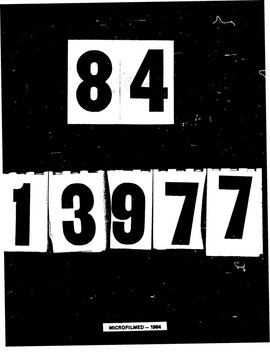| dc.contributor.author | Humphreys, George G., | en_US |
| dc.date.accessioned | 2013-08-16T12:29:02Z | |
| dc.date.available | 2013-08-16T12:29:02Z | |
| dc.date.issued | 1984 | en_US |
| dc.identifier.uri | https://hdl.handle.net/11244/5209 | |
| dc.description.abstract | The introduction of Taylorism in France did not represent a complete break in French factory relations. Indeed, efforts by nineteenth-century employers to discipline their employers indicates greater continuity with Taylor's intentions than historians have often admitted. Moreover, the bourgeoisie's continued interest in factory discipline and their efforts to solve the "social question" after the Paris Commune demonstrate that Taylorism's appeal was as much social as technological in origin. | en_US |
| dc.description.abstract | Support for Taylorism before the war came from the right, as elitist engineers such as Henry Le Chatelier and a small number of innovative entrepreneurs in the automobile industry supported scientific management. However, the inept attempts of Louis Renault and other employers to implement the system aroused opposition from skilled workers who believed it would eliminate their control over the production process. To a remarkable extent, the Renault strikes against Taylorism embodied the struggle of skilled labor to prevent its proletarianization and to maintain its professional status and social prestige. | en_US |
| dc.description.abstract | This dissertation is an intellectual history of Taylorism in France from 1904 through 1920 that: establishes the links between Taylorism and traditional labor and management conflicts over labor discipline and autonomy and stresses the unique nature of Taylorist development in France during the period. In so doing, the historical analysis of Taylorism provides a "window" through which can be observed the transition to twentieth century patterns of factory relations. | en_US |
| dc.description.abstract | The First World War and subsequent postwar economic planning broadened support for Taylorism. Though scientific management's contributions to economic mobilization were meager, the tremendous demands for munitions led government officials such as Minister of Armaments Albert Thomas and Minister of Commerce (')Etienne Clementel to embrace Taylorism. As French engineers seized the opportunity to advance themselves professionally by advocating Taylorist reforms, the Union sacree also neutralized labor opposition and encouraged a labor Saint-Simonian minority. Nonetheless, by 1920 divisions among the economic reformers impeded reform, and scientific management's progress was sidetracked by the patronat's conservative reaction to state economic interference, the Bolshevik revolution, postwar strikes in France, economic insecurity and strong opposition from small employers to scientific management reforms. | en_US |
| dc.format.extent | vi, 275 leaves ; | en_US |
| dc.subject | History, European. | en_US |
| dc.title | Taylorism in France, 1904-1920 : | en_US |
| dc.type | Thesis | en_US |
| dc.thesis.degree | Ph.D. | en_US |
| dc.thesis.degreeDiscipline | Department of History | en_US |
| dc.note | Source: Dissertation Abstracts International, Volume: 45-03, Section: A, page: 0913. | en_US |
| ou.identifier | (UMI)AAI8413977 | en_US |
| ou.group | College of Arts and Sciences::Department of History | |
